Three simple keystrokes will deliver search results that consume less energy and water — and probably contain better information.
A few weeks ago, I wrote an editorial discouraging environmentalists from using generative AI programs like ChatGPT due to their extraordinary energy and water consumption. If you care about the planet, I argued, you shouldn’t use such climate-damaging systems.
Most people responded to the editorial positively, but one follow-up question kept coming up: “How do I get AI completely out of my life?”
That’s a broad question, and it’s a tough one to answer because artificial intelligence has been wrapped into so many aspects of our daily lives, from cell phones, use of Microsoft Word, customer-service inquiries and, of course, search engines.
That last one bothered a lot of you, who complained about Google presenting AI answers to every search, well before any websites that might contain the same (or better) answers.
Now, search results that present AI-generated answers don’t carry quite the same environmental cost as full-fledged generative AI queries — like asking ChatGPT to “write” a full essay — but some research suggests AI search results will use four to five times as much energy as the old non-AI searches we used to enjoy. That’s not nothing, and in the battle against climate change, every watt counts.
Luckily, it turns out there’s an easy way to get AI out of your Google search results. Simply type these three keys after your search term: -AI
(That’s the minus sign immediately followed by the letters AI, with no space between them.)
Here’s an example: I Googled the phrase “why are tigers endangered” and got this result, leading with an AI-generated overview:
I tried it again with “-AI” at the end of the search phrase and got these results, which start with an authoritative source. Google still includes an overview pulled from the pages, but it doesn’t appear to have been generated by AI:
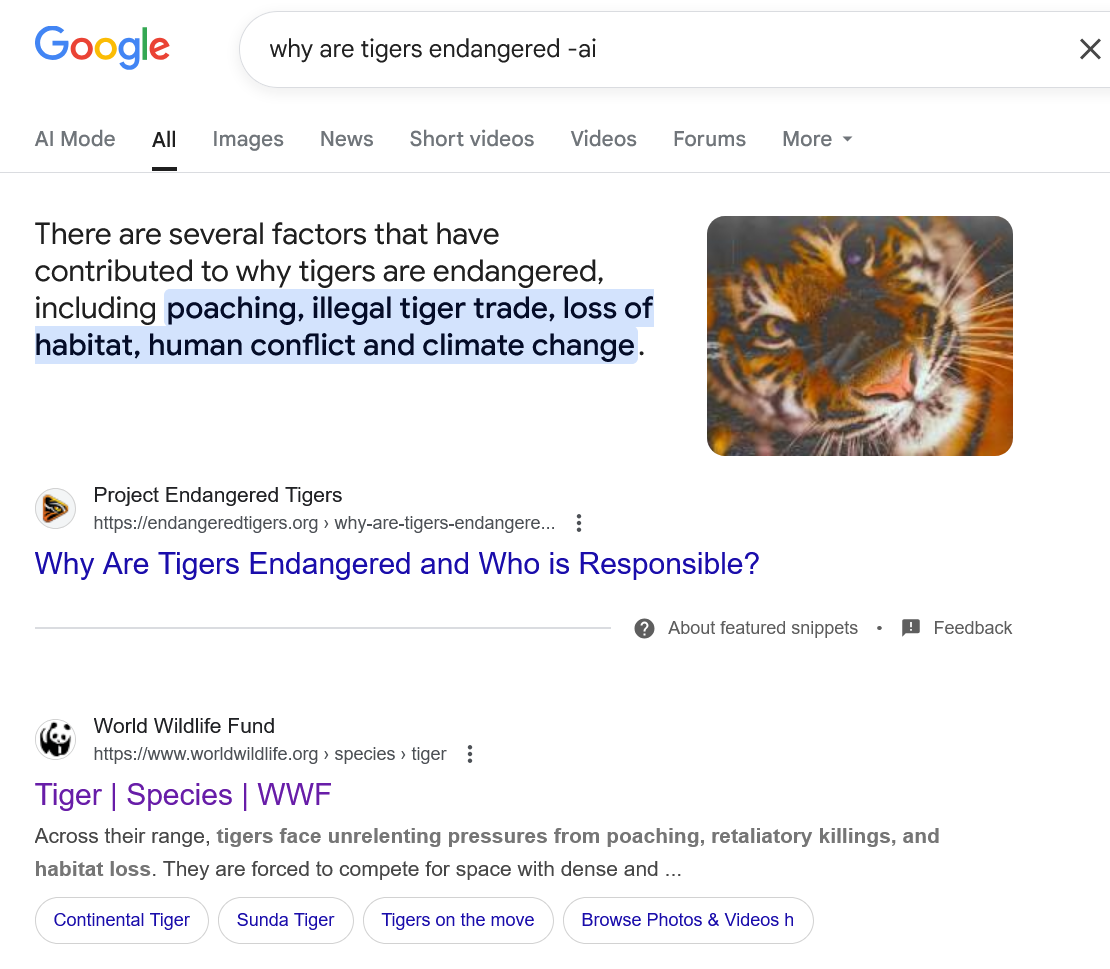
A second example: I searched for information on data centers and noise pollution (another problem of AI) and got this AI-generated search result:
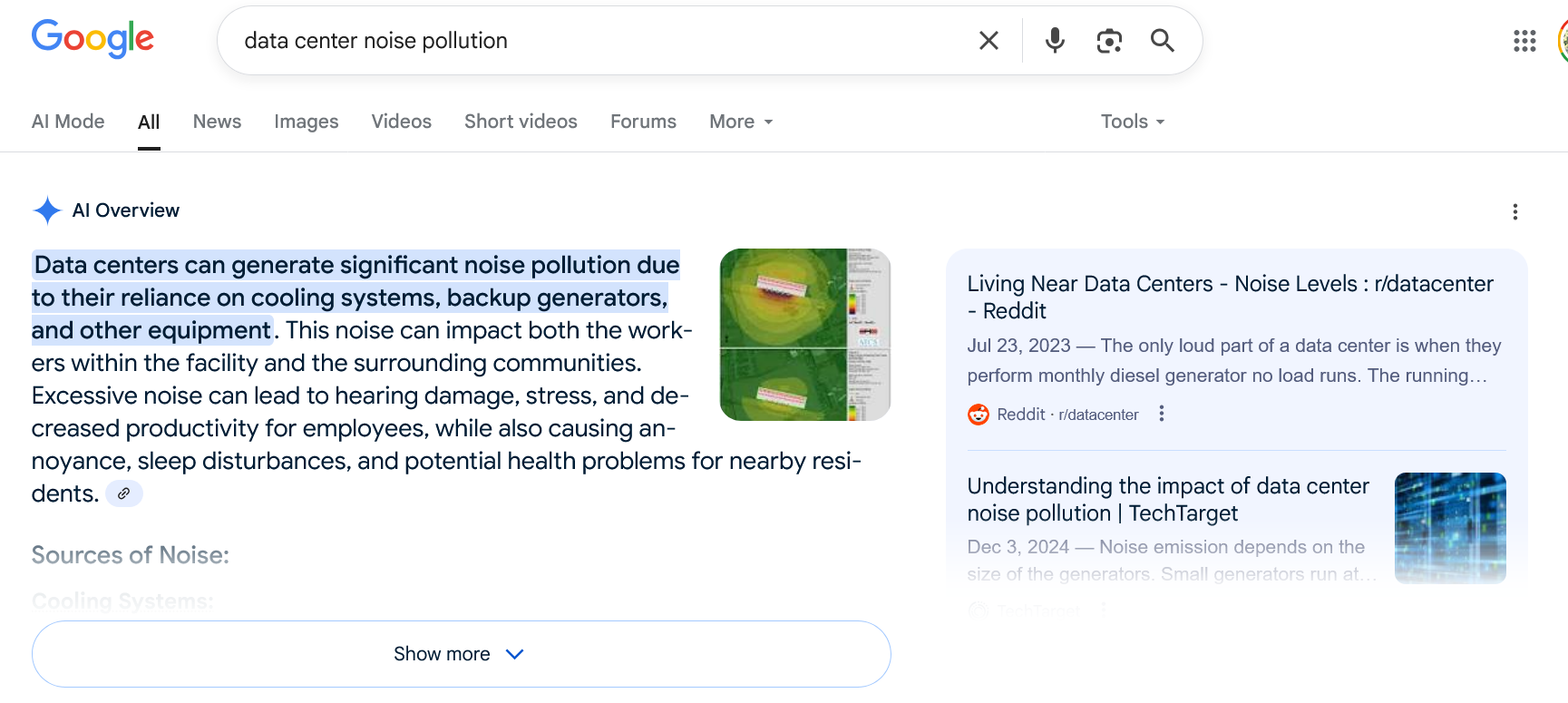
But I added “-AI” to the search and got a reputable source first. Google still included a few lines from that source, but that’s the point: It was sourced in the first place. A lot of AI-generated texts don’t present their sources, so you can’t judge their veracity.
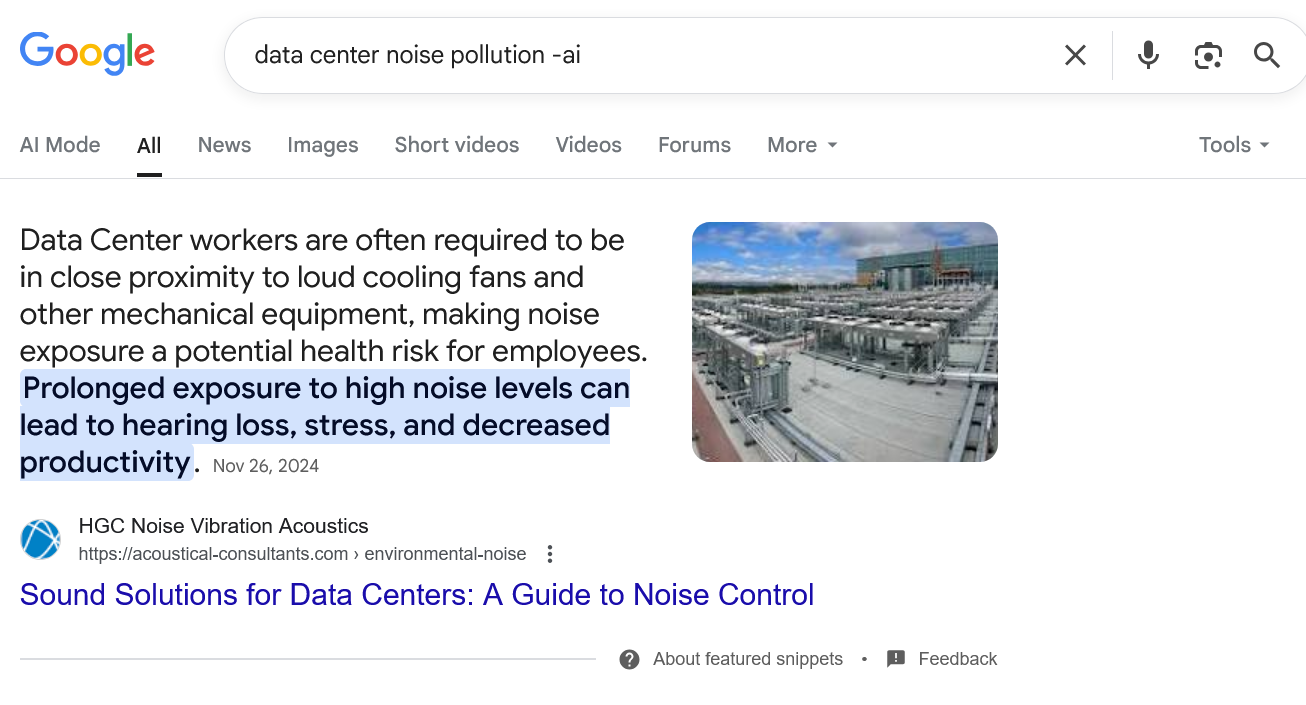
Google is obviously the king of search, but it’s not the only game in town. I tried this on a variety of other search engines and got similar — but imperfect — results.
A normal search on Bing delivered a detailed AI answer from its Copilot AI system.
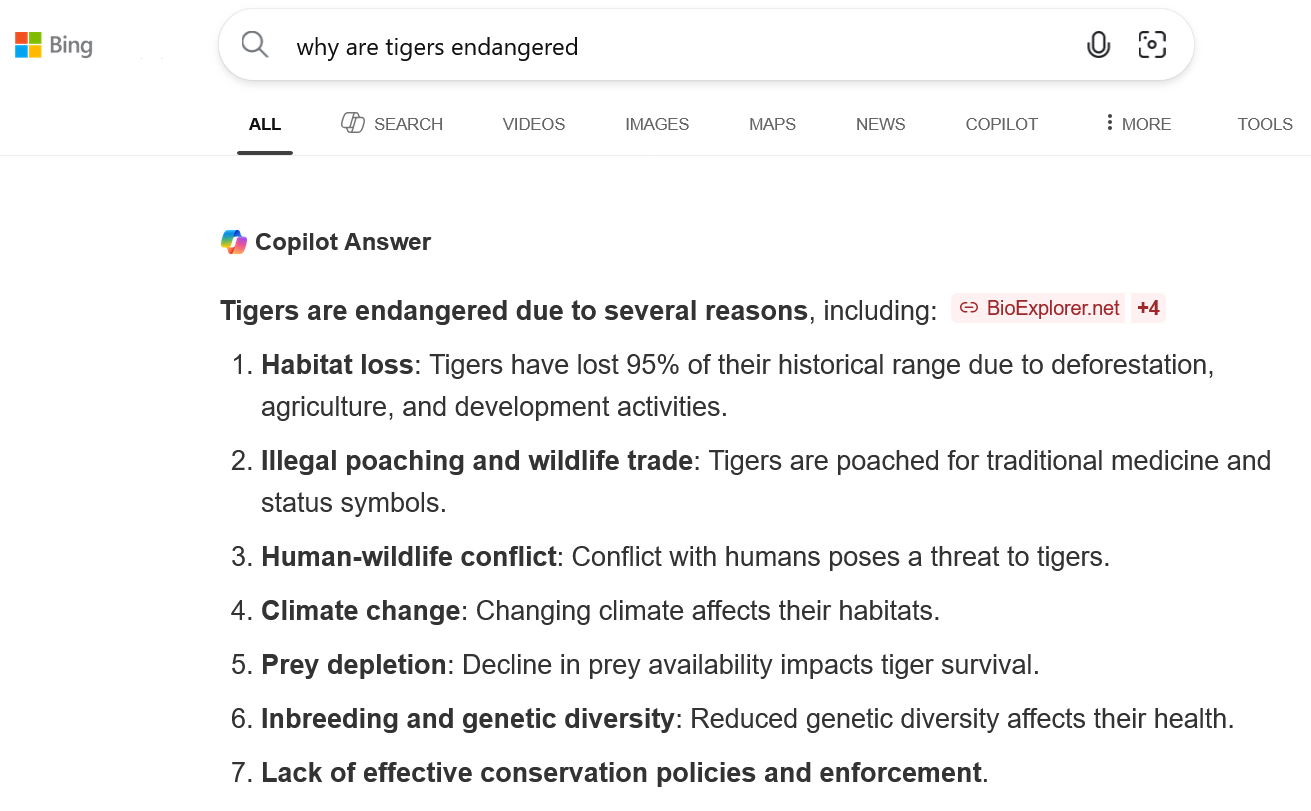
Using “-AI” on Bing delivered a search result with a space for Copilot, but that space didn’t populate.
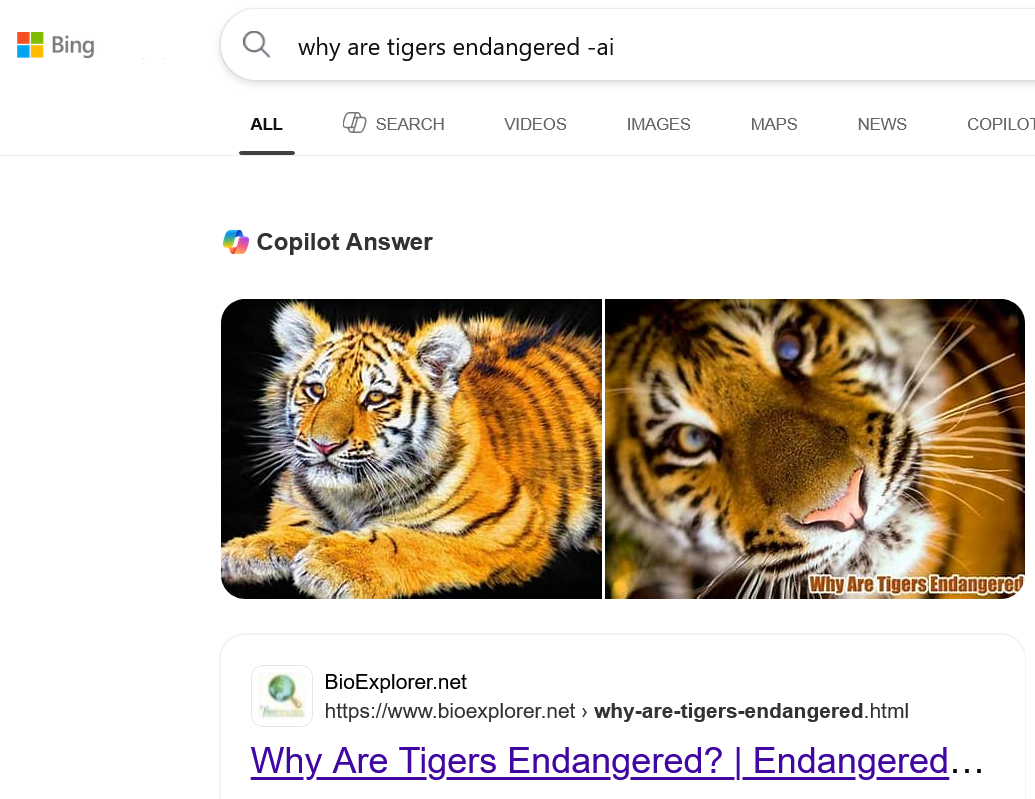
A normal search on Yahoo delivered an AI summary.
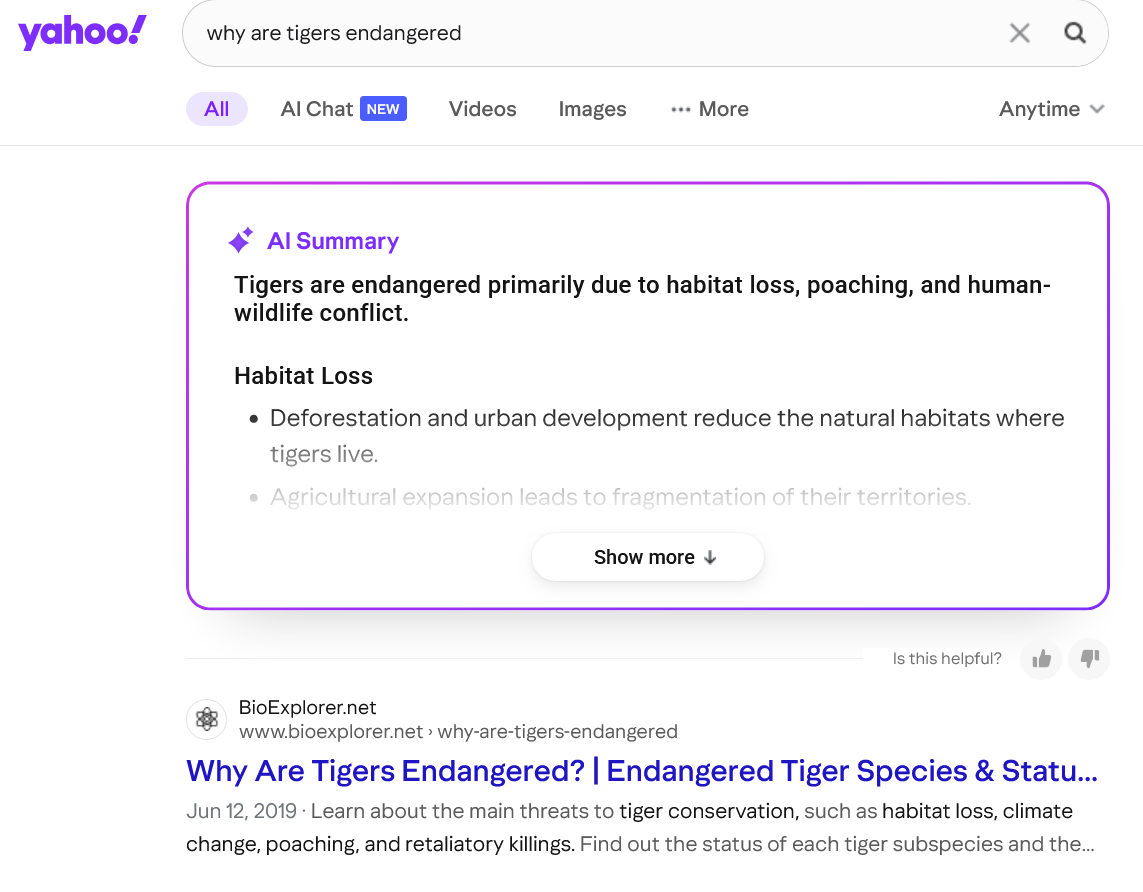
Using “-AI” on Yahoo still generated an AI answer, although it appeared after an authoritative source. (This earns Yahoo a failing grade, in my book.)
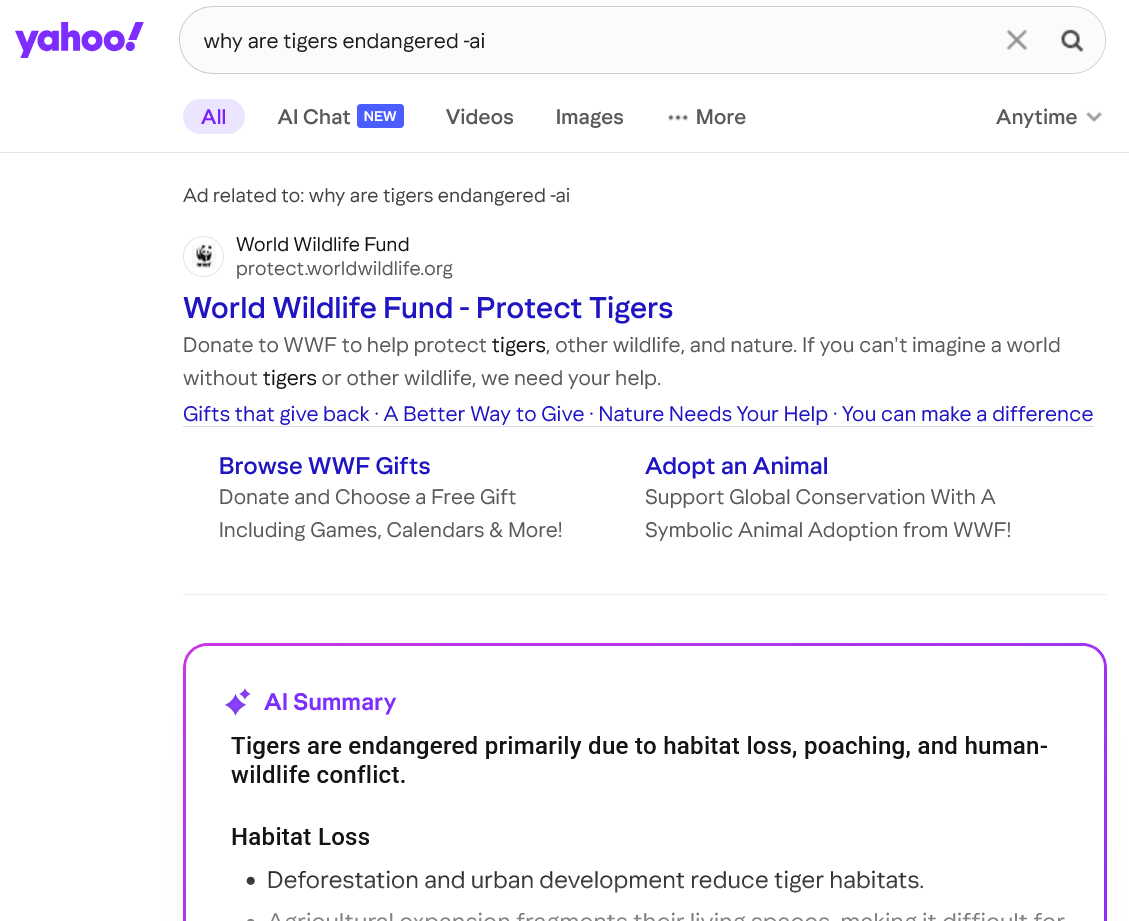
DuckDuckGo presented an AI “assist” on my first search (which, quite interestingly, included a warning about its possible lack of accuracy).
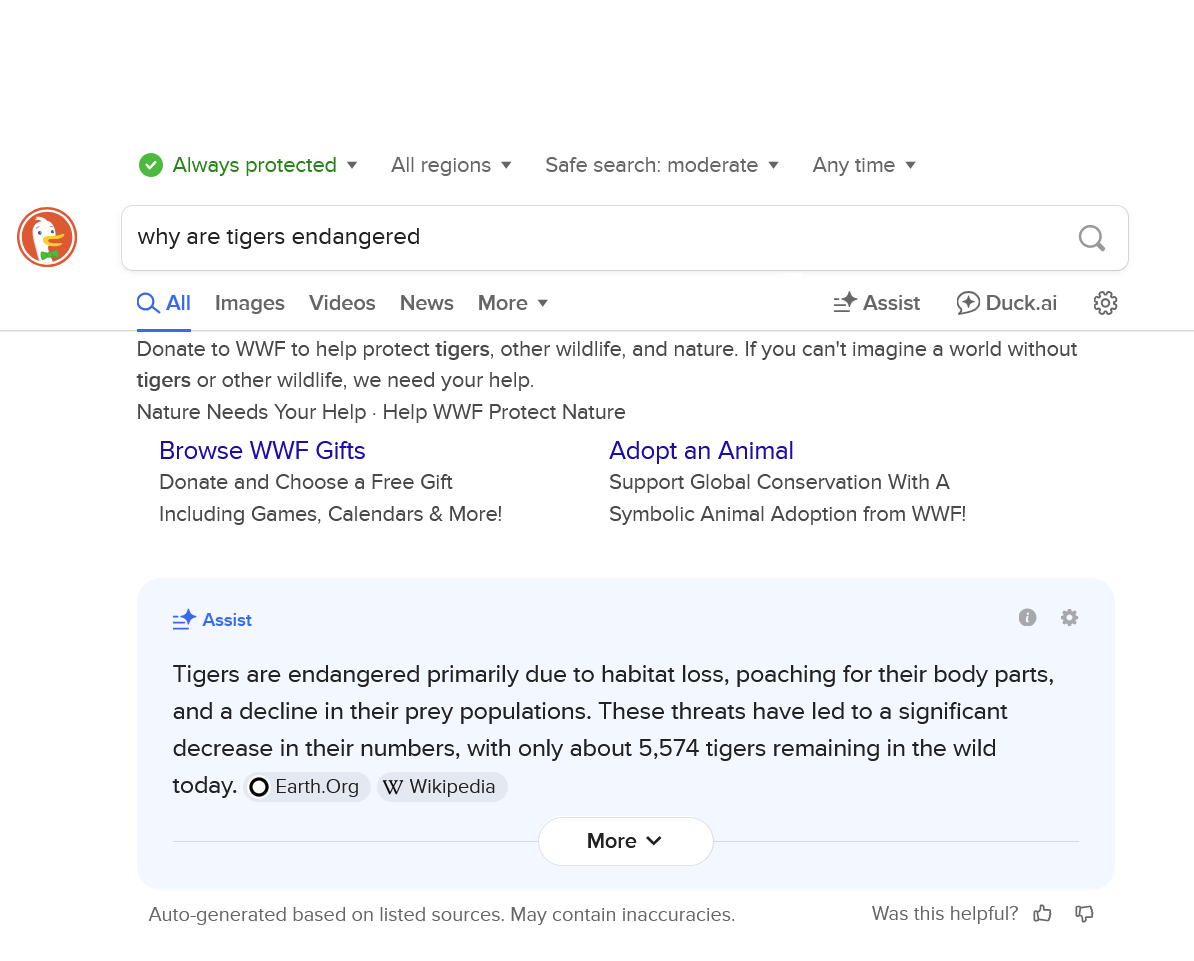
Adding “-AI” to the search on that platform delivered AI-free results. This made DuckDuckGo today’s winner. (It’s worth noting that DuckDuckGo also receives high marks from security specialists because it doesn’t track your search results.)
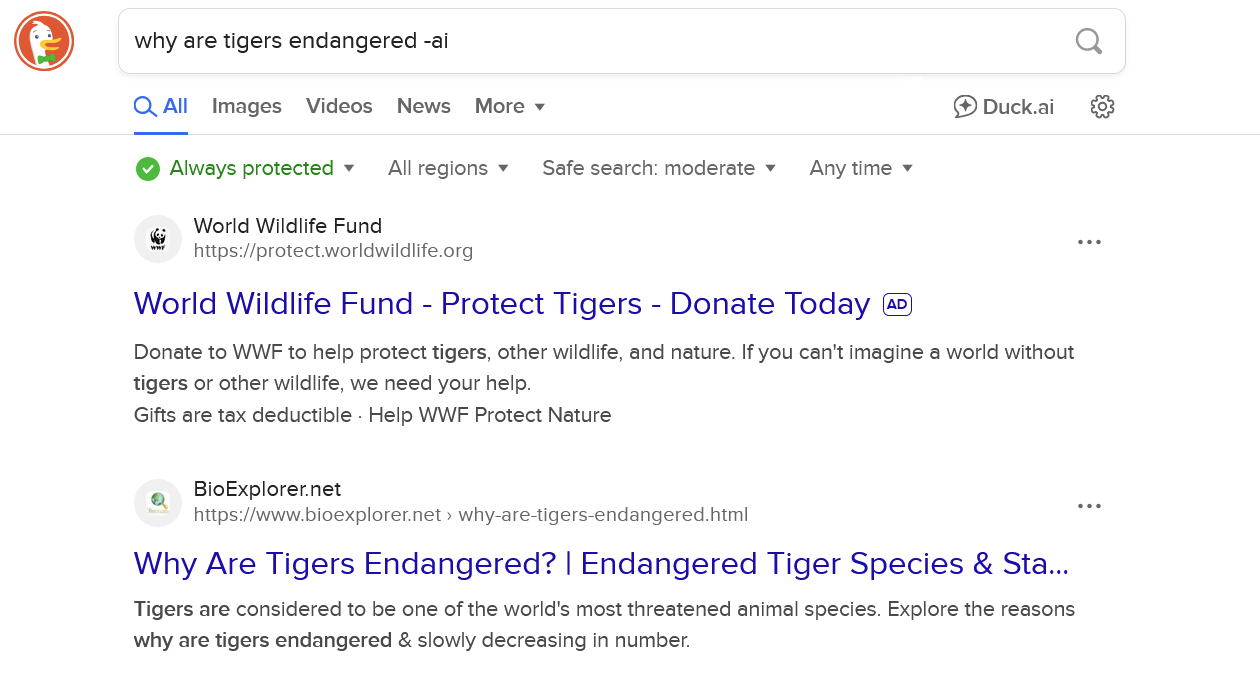
None of these results are perfect, and these search engines are likely to modify their systems at any time. But as of this writing using “-AI” seems like a simple and efficient way to reduce the carbon footprint of your online searches — which, as a journalist who searches for stuff dozens of times a day, is something I appreciate.
Credit where credit is due: I got this tip about Google from a video posted by ABC News chief meteorologist Ginger Zee. Watch her video below, and her Climate A to Zee series on YouTube:
Do you have other questions about reducing your carbon footprint or helping wildlife? Or do you have tips to share? Write to us at [email protected].


Why The Revelator Banned AI Articles and Art

